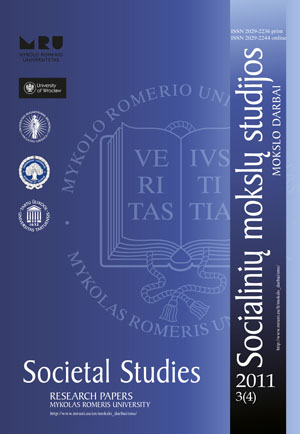Atlikėjų turtinių teisių kolektyvinis įgyvendinimas (administravimas) Lietuvoje
Collective Management of Performers’ Economic Rights in Lithuania
Author(s): Jūratė Usonienė, Nijolė Janina Matulevičienė, Ramūnas BirštonasSubject(s): Social Sciences
Published by: Mykolas Romeris University
Keywords: individual exercise of performer economic rights; transfer of performer exclusive rights; performer’s right; related rights; author’s rights
Summary/Abstract: Individual enforcement of performer’s economic rights in practice is ineffective in many respects and in some cases is simply impossible. Therefore, the subject of the present article is the collective management of performers’ rights which could effectively support the individual enforcement. The article is divided into three parts. The first part deals with the general premises and peculiarities of the collective management of performers’ rights. The outcome of the analysis shows that collective management is unavoidable for a number of reasons. First, a part of the economic rights is mandatorily enforced only in a collective way. Second, collective management is beneficial for both performers and their contractors. Also, the Lithuanian Neighbouring Rights Association, AGATA, which is currently responsible for the collective administration of performers’ rights in Lithuania, is introduced in the article. In the second part of the article the collective management of a particular performer’s rights to remuneration (for broadcasting by wireless means and communication to the public of a phonogram published for commercial purposes, for the transferred or assigned performers’ rental right and for private reproduction) is analyzed. Special attention is paid to the factual economic revenues from each of these economic rights. The conclusion is drawn that Lithuanian performers have a disproportionately small share comparing to other right holders and this situation should be improved. The third part of the article inquires into future perspectives of collective management and the possibility to extend it in some respects. It is argued that the mandatory collective management should be extended to embrace the right for remuneration if the right of making performance available to the public is transferred or assigned to a producer and the proposed right to remuneration for broadcasting by wireless means and communication to the public of an audiovisual fixation.
Journal: Socialinių mokslų studijos
- Issue Year: 3/2011
- Issue No: 4
- Page Range: 1391-1415
- Page Count: 25
- Language: Lithuanian

